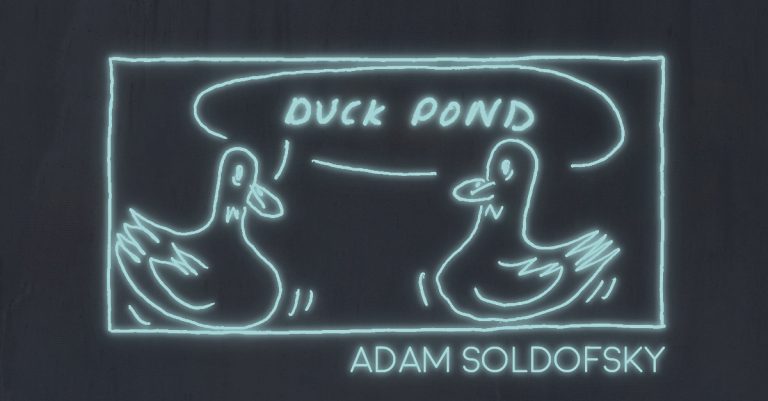
Archives

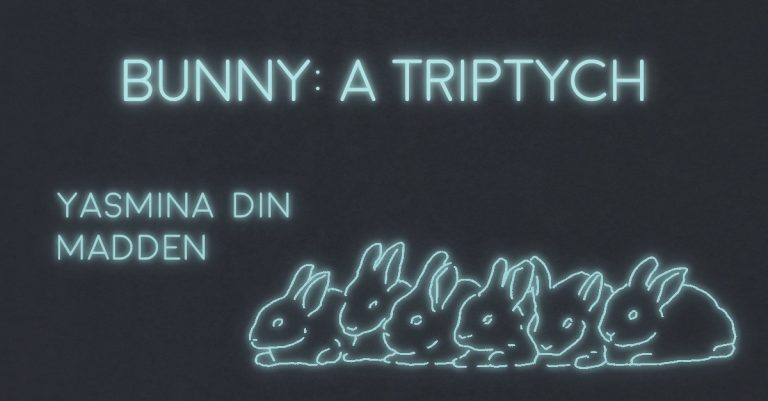
BUNNY: A TRIPTYCH by Yasmina Din Madden
1. The rabbits come in dozens it seems. Nothing one minute, invasion the next. They crouch in the grass like tiny statues, gray fur flecked with white. Cottontails. Leaf-ears at attention. Waiting. Kits, short for kittens, now called bunnies, as if kitten is not cute enough for the tiniest of these rabbits. Bunny, diminutive of the Scottish bun, a nickname for a pet rabbit. Also, slang for a young, attractive woman. She’s a real bunny. A male rabbit is a buck, a female a doe. Before mating, the buck chases the doe until she turns and boxes at him with
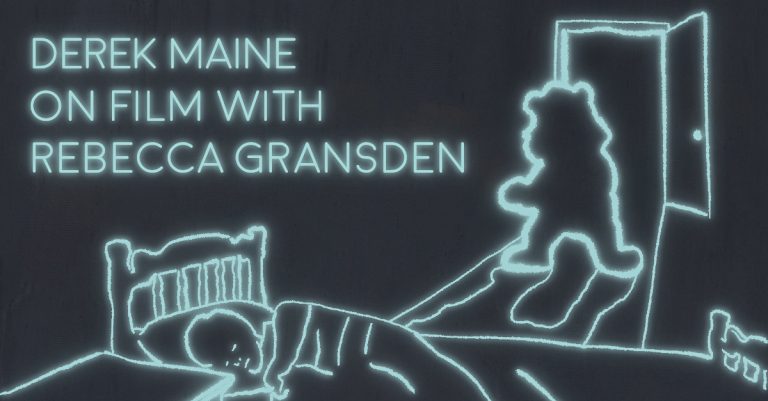
DEREK MAINE on film with Rebecca Gransden
What film, or films, made the first deep impression on you? The first film I saw in the theater was Flight of the Navigator. We must have arrived late. Or it was unexpectedly full. We had to sit in the very front row. I was very uncomfortable. I was seven or eight. It came out in 1986 so I would have been four but that can’t be true. Anyway, when you are four or seven or eight you are really small. I remember the screen was huge. I couldn’t handle the sensory overload. It felt like the screen was going
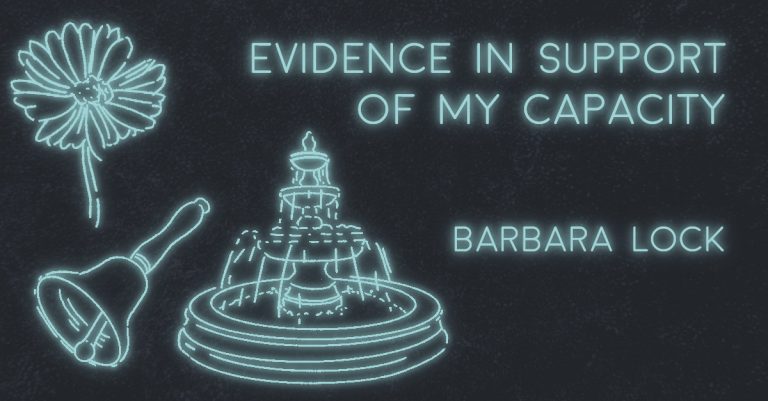
EVIDENCE IN SUPPORT OF MY CAPACITY by Barbara Lock
One time I punched a wall that I thought was made of plasterboard but was in fact concrete. Either way, I would have broken my hand. The side of my fist near my pinky crunched up and my girlfriend told me I was a lunatic. Stop it, stop it, she said. Then she covered her face with a shroud, which irritated me to no end. I wore a white wool sweater in the style of Irish fishermen last year which placed me fifteen years too far in the past, or possibly the future. It’s hard to know. My appearance was
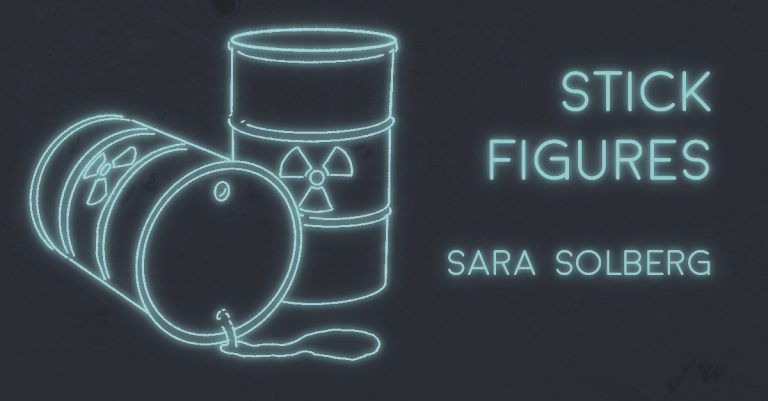
STICK FIGURES by Sara Solberg
In an eastern New Mexico desert, amid a forest of mesquite and bluestem grass, overlooking nothing but miles upon miles of iron-pressed, sunbaked earth, sits the Waste Isolation Pilot Plant (WIPP for short). On the surface, it looks like any other government base: a simple grid of unremarkable squat buildings, the tan color of which bleeds into the surrounding arid landscape. But step into one of the elevators that spend their days bobbing up and down WIPP’s vertical mine shafts, ferrying hard-hatted workers between ground level and the ancient salt bed 2,150 feet below, and it’s a different story. One
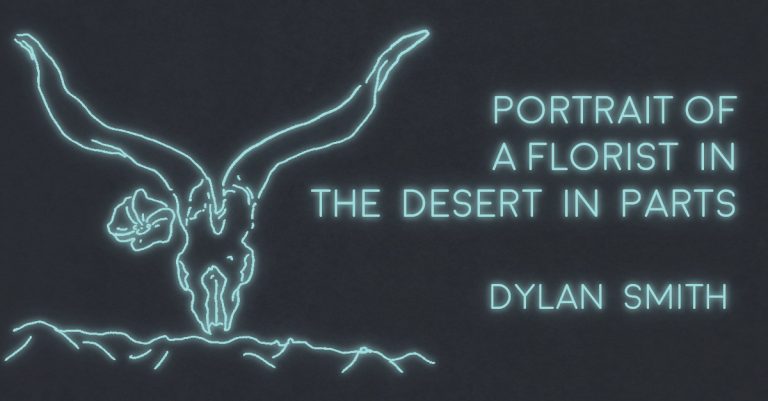
PORTRAIT OF A FLORIST IN THE DESERT IN PARTS by Dylan Smith
1 My van broke down on a mountain north of Marfa, so I had it towed back to Santa Fe where a mechanic named Ever repairs transmissions. I talk to Ever every day. Every time Ever answers I have to explain to him it’s me—the kid with the tagged-up van. My sister lives with an unemployed florist in this complex in the desert. The florist offered to pick me up from Ever’s; to drive me ever deeper into this desert to visit with my sister. What a guy. In my portrait of the florist, he will be sitting at my
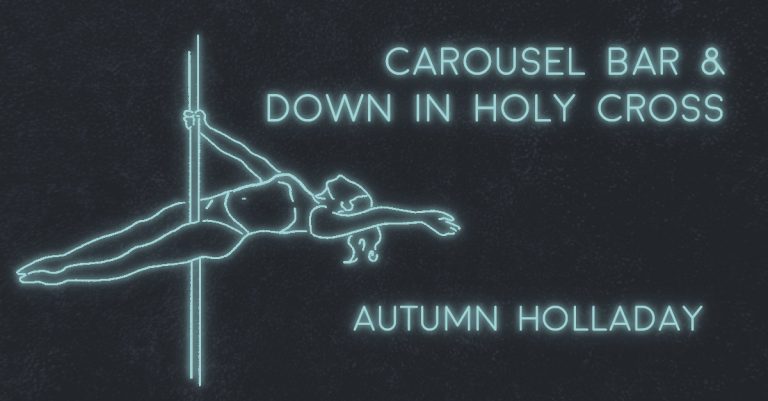
CAROUSEL BAR / DOWN IN HOLY CROSS by Autumn Holladay
Carousel Bar I miss 99-cent margaritas served at the old strip from 6:00 a.m. to noon. I’d sit and sip and watch the sex workers rest on slot machine stools after their shift. Most tourists weren’t around at that hour—just the cleaners and the junkies and the loners, and I thought they were my kind of people. The bartender invited me to shower with her after her shift. I believed there was no better way to spend my last day in Vegas. Her name was Holly. She wore a leather corset and when she took it off, tattoos took
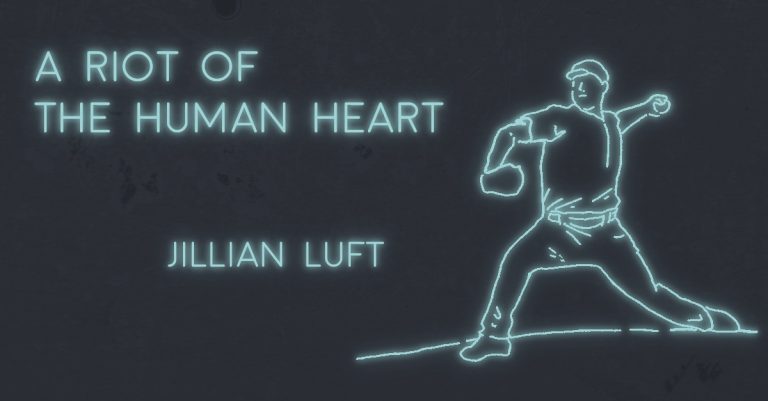
A RIOT OF THE HUMAN HEART by Jillian Luft
Boston is burning itself over a baseball game. Outside of Fenway, the local evening news zooms in on a few torched sedans. Undercarriages in flames like hibachi grills. White boy ruddy faces rejoicing. Game 4 of the 2003 ACLS. A Red Sox victory. I care about baseball because I love you. I want to wake you up to celebrate Johnny Damon and Pedro Martinez and all those other shaggy-haired rascals hellbent on breaking the curse. Once you view the game highlights, I want you to bang me against the TV, so my bare ass kisses static. I want you to
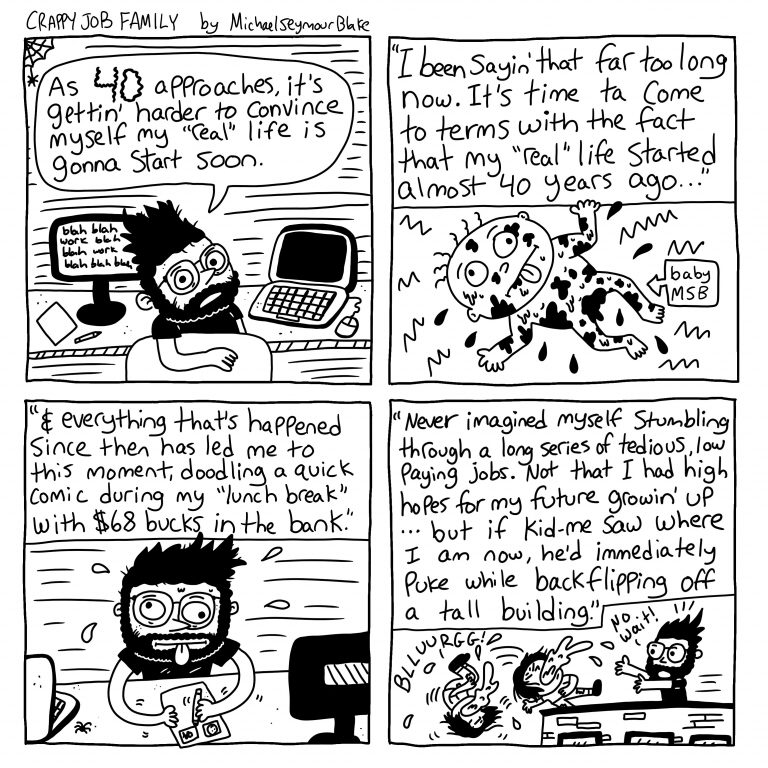
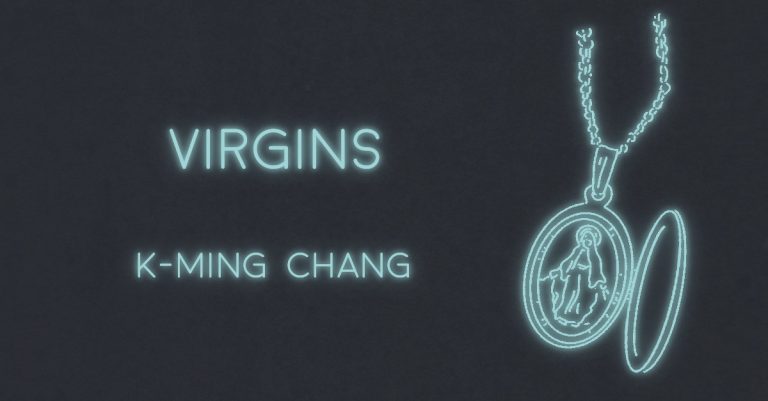
VIRGINS by K-Ming Chang
Sixth grade was the year I met Melanie. She’d transferred from private school, Catholic, and around her neck was a copper locket with the Virgin Mary’s portrait inside it. It was the first white person I’d ever seen, minus the wasian in our class who had freckles even in the crack of her ass. The first time Melanie showed me what was inside her locket, we were changing together in the concrete-walled locker room, right in front of the window spattered with flies that spanned the gym teacher’s office. Everyone knew those were the worst lockers to get, the ones
